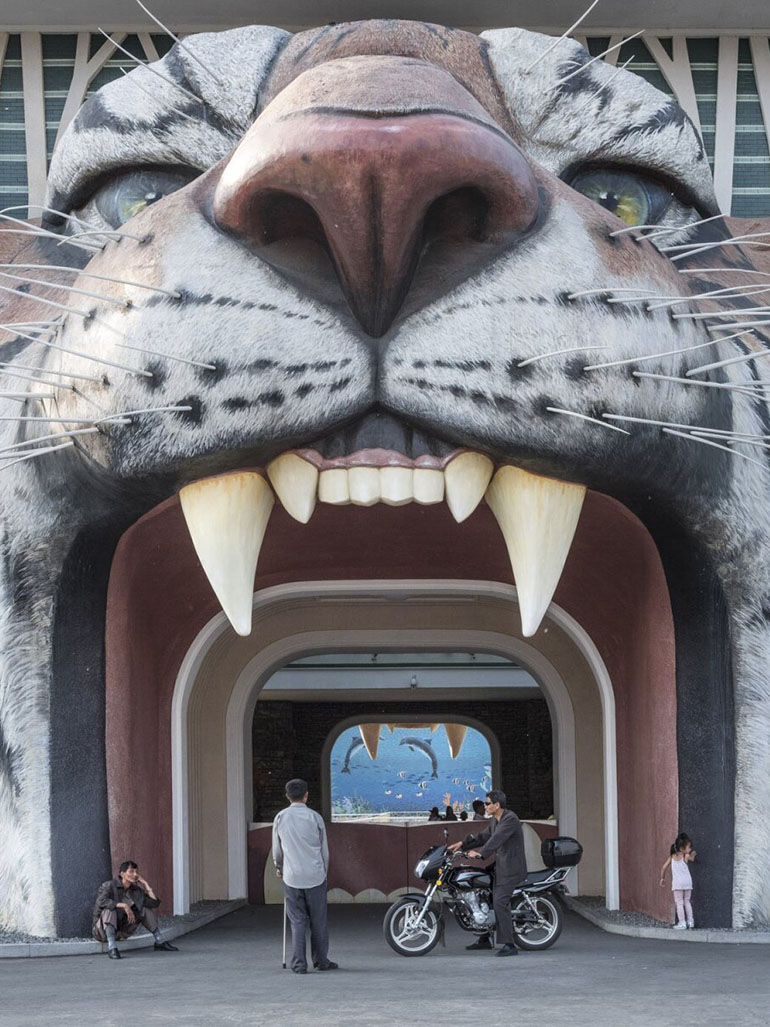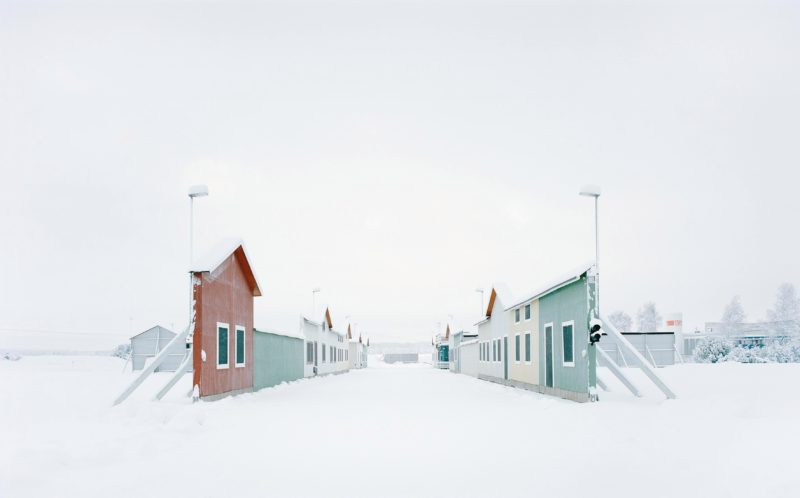
Car manufacturers test vehicle safety at Carson City in Vårgårda, Sweden
Introduction
Gregor Sailer 1 is an Austrian photographer born in 1980. He is known the world over for his architectural photographs. His most remarkable work is the Potemkin Village, in which he pairs together a couple of ‘fakes’ to create cities and towns.
Gregor was educated in Austria and Germany, where he specialized in architectural photography. Since 2005, he has been living and working in Tyrol, Austria. He has traveled to many destinations in the world, taking pictures of the architecture in those places. His vast collection of photos has enabled him to develop works like the Potemkin Village.
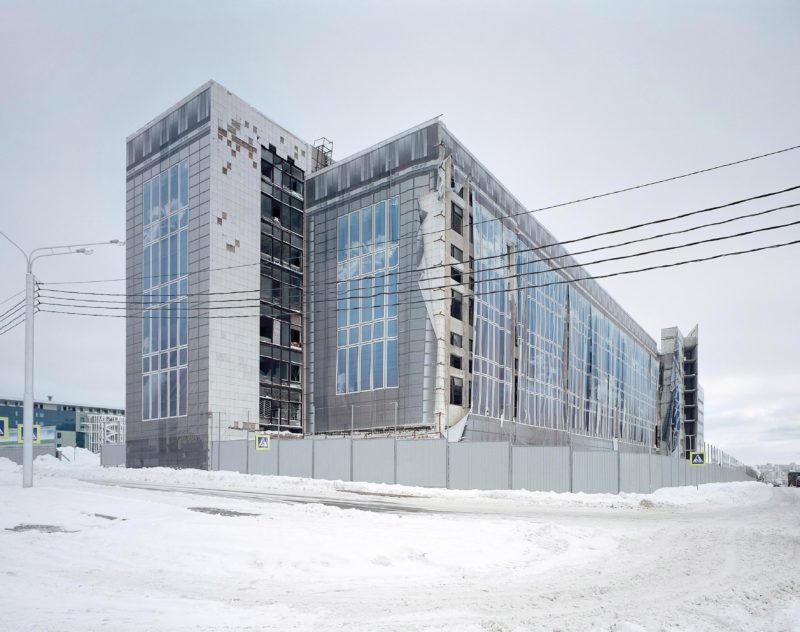
Ufa, Bashkortostan, Russia, Officials of this town masked forlorn buildings for a BRICS summit in 2015
Sailer first discovered two current examples of Potemkin village in Russia, specifically in Ufa and Suzdal. He describes it 23 as follows:
In Suzdal, as part of a Putin visit, the city was embellished with backdrops. And in Ufa, Putin invited the emerging economies of Brazil, Russia, India, China and South Africa to a meeting. Entire streets and facades were covered up in order to hide the actual shabby condition of the houses. I realized that this is a global phenomenon: armies are building fake cities to prepare for warfare.
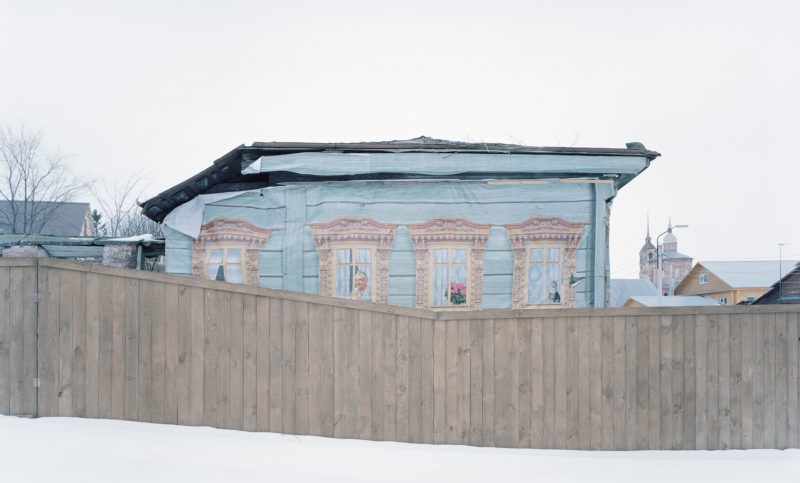
The town of Suzdal, Russia, camouflaged dilapidated buildings ahead of a 2013 visit by Vladimir Putin
The Potemkin Village
This book is a collection of photos that have come to be regarded as ‘fake cities’. These are photos of towns in different locations in the world and the outstanding buildings in those areas as well. Gregor has collected this together to develop a revolutionary collection that speaks of the politics faced in the modern-day world.
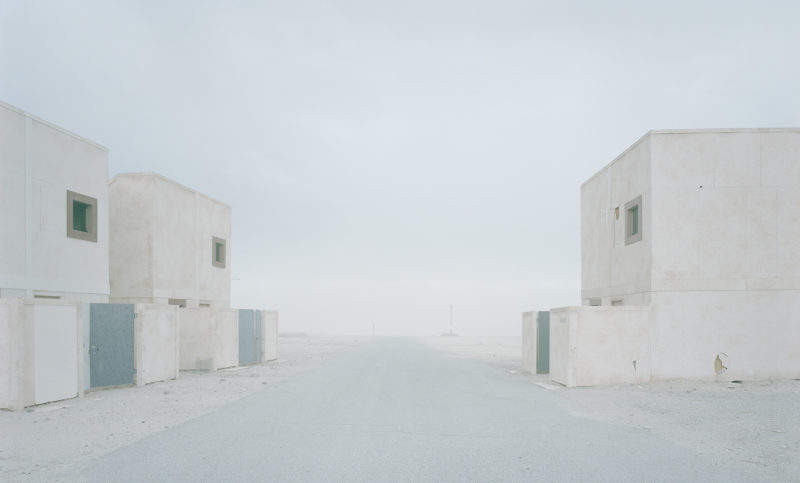
Junction City VII, Fort Irwin, US Army, Mojave Desert, California, USA, 2016
Why were Potemkin villages created?
His collection is inspired by Field Marshal Potemkin 45, a crony of the Russian empress, Catherine the Great. Potemkin is said to have asked that there be painted large boards along the trail that Catherine would traverse the country.
These boards were meant to present a near-perfect illusion that would represent flourishing villages. In essence, though, this was meant to mask the fact that there was rampant underdevelopment and misery in those areas.
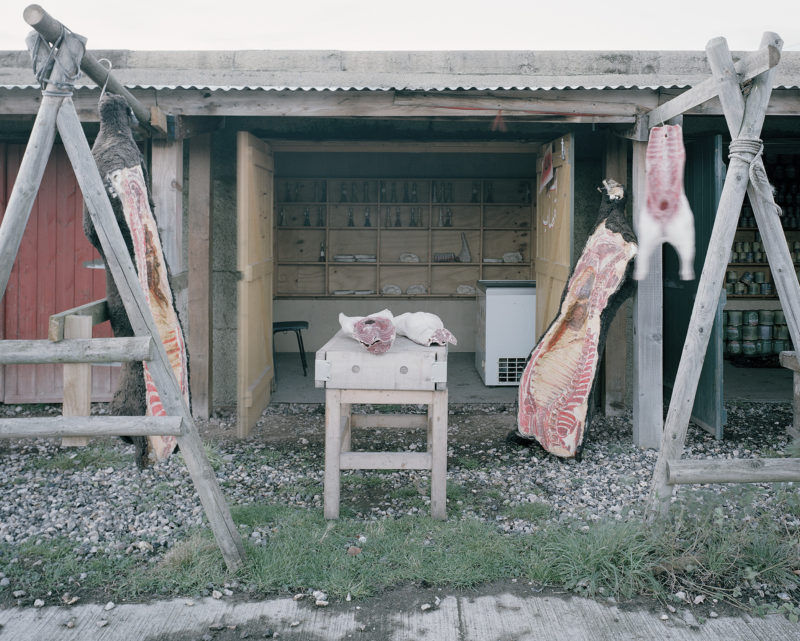
Eastmere, Stanford Training Area, British Army, Norfolk, England, 2015
Gregor, having observed how the political scene is filled which such a façade, also started working on his collection. He visited destinations in Russia 6, Germany 7, Sweden 8, France 9, China 10 and the USA as well.
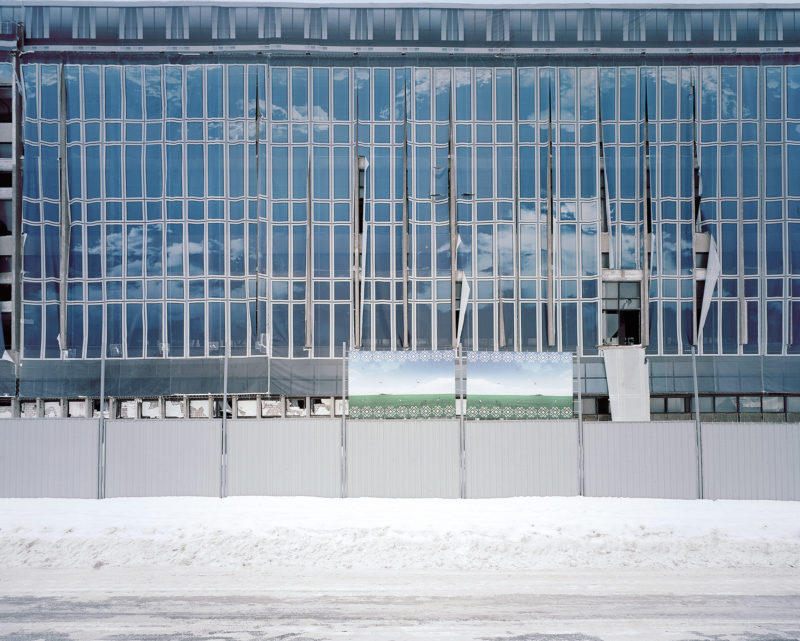
Ufa II, Bashkortostan, Russia, 2016
He was particularly interested in Russia because of an incident in 2013. President Putin was visiting a town in Russia, which was on a downward trend in terms of real estate occupancy. It is said that the administration in these towns used boards inside the buildings to create the illusion of residency.
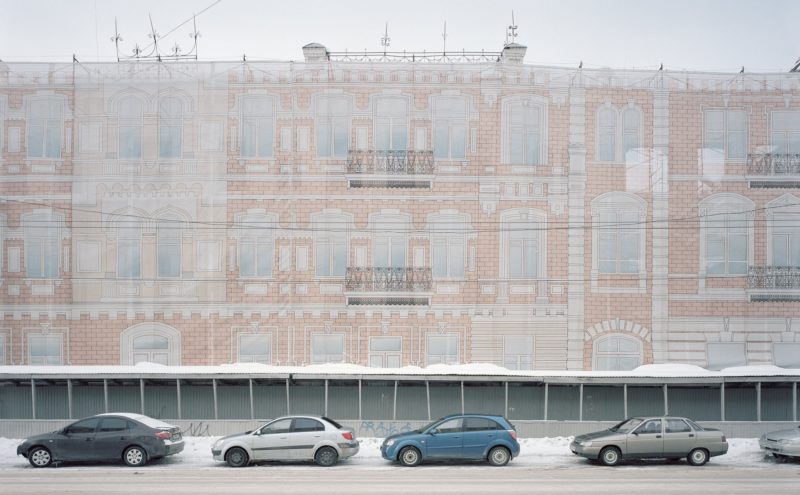
Ufa IV, Bashkortostan, Russia, 2016
Conclusion
Whether President Putin realized this and worked on it remains largely unknown. But one man was inspired by this, which led to his endless efforts to come up with a photo collection that would speak of these façades and brainwashing by governments and politicians.
Gregor’s work resonates with many people that have been victims of oppressive political regimes. His book can be bought online on many sites. It is available in both electronic versions and hard copies.
Locations
| Location | Year |
|---|---|
| Ufa, Bashkortostan, Russia | 2015-2016 |
| Suzdal, Russia | 2013 |
| Stanford Training Area, Norfolk, England | 2015 |
| Anting, China | 2016 |
| Gaoqiao New Town, China | 2016 |
| Luodian New Town outside Shanghai, China | 2016 |
| Songjiang, China | 2016 |
| Camp de Sissonne, France | 2015 |
| Schnöggersburg, Sachsen-Anhalt, Germany | 2017 |
| Vårgårda, Sweden | 2016 |
| Fort Irwin, Mojave Desert, California, USA | 2016 |
China
Sailer also visited Chinese replica cities, however, deliberately leaving out the famous Paris and Hatllstatt copies and focusing on the lesser-known ones.
The Chinese cities are unique in this project because they were built mainly for residential intents. It turned out that the local population barely accepted these European-style concept cities, making them barely populated in the process, creating more ghost towns that are silently decaying.
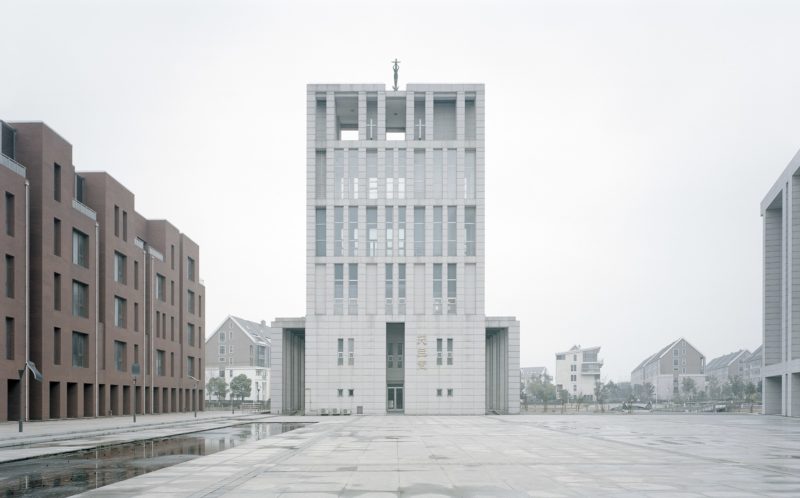
German Town V, Anting, China, 2016
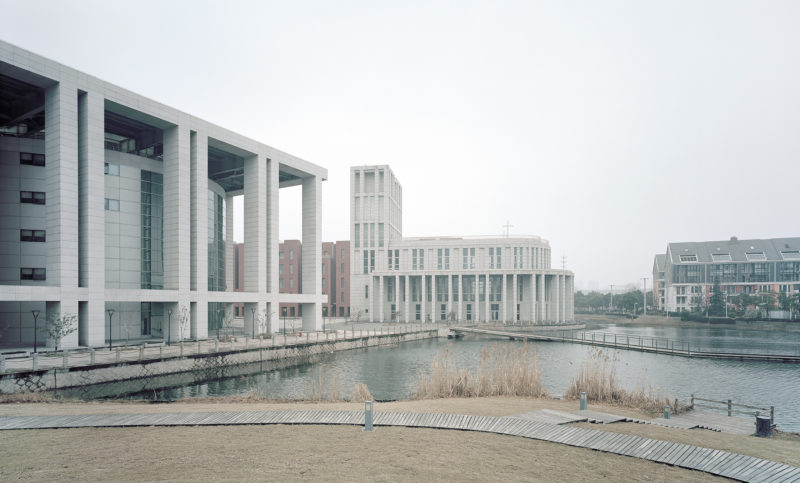
German Town VI, Anting, China, 2016
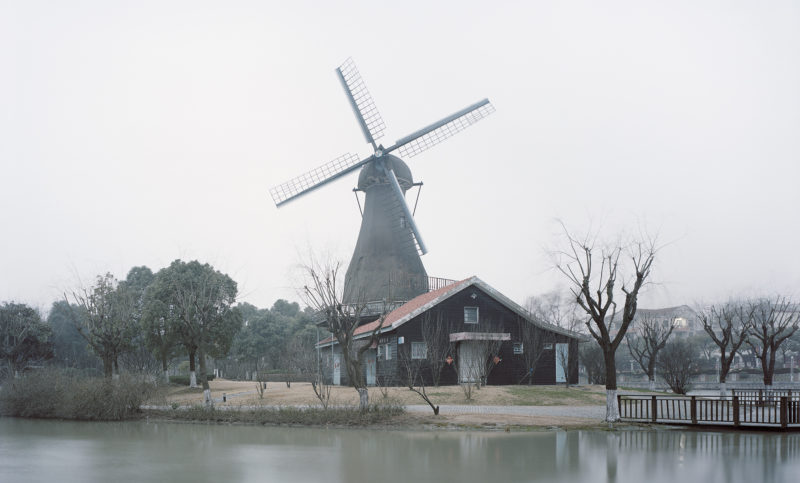
Holland Town I, Gaoqiao New Town, China, 2016
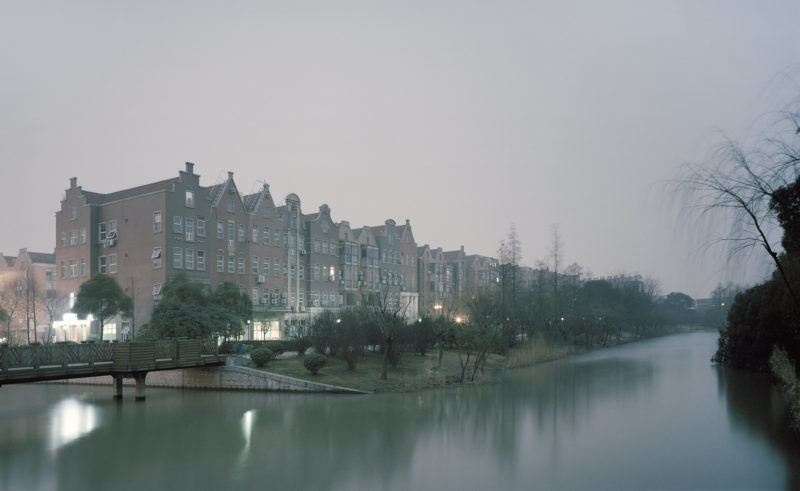
Holland Town VI, Gaoqiao New Town, China, 2016
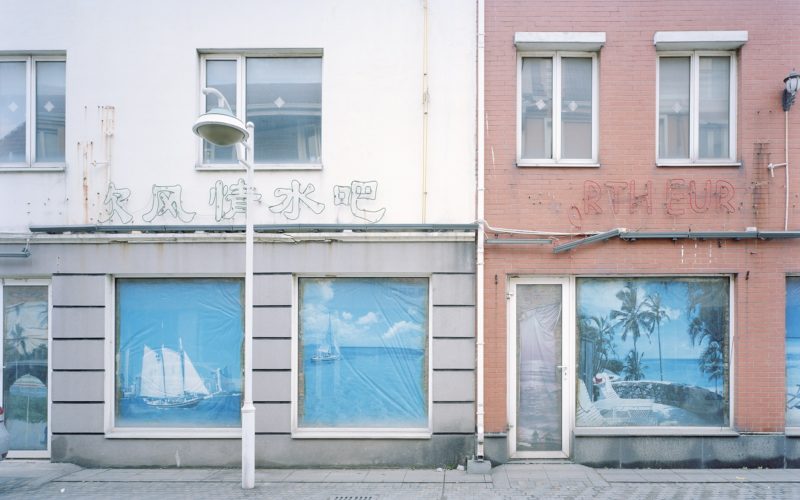
Luodian New Town outside Shanghai, China recalls the urban landscape of Sweden
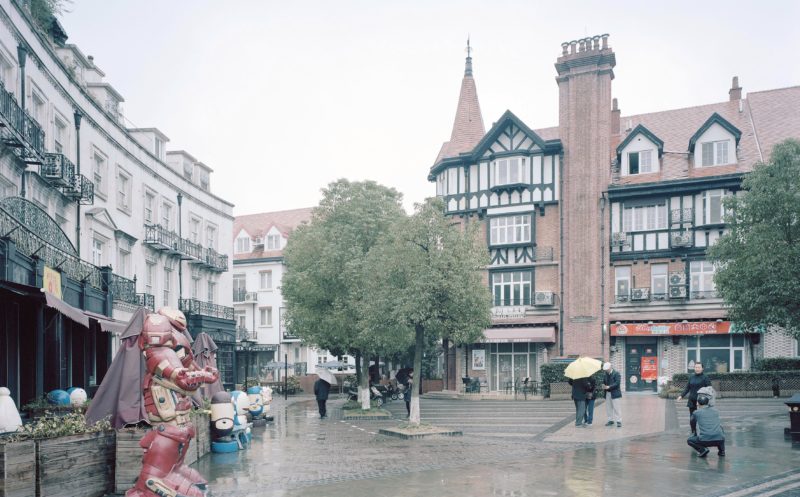
Thames Town in China is the spitting image of an English town
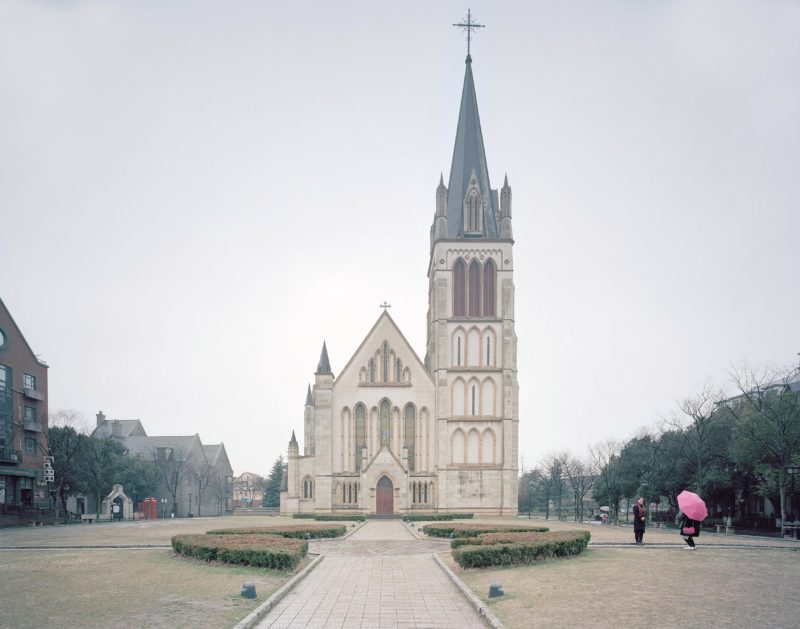
This English-looking church in Thames Town V, Songjiang, China, is a copycat of a similar building in Bristol, 2016
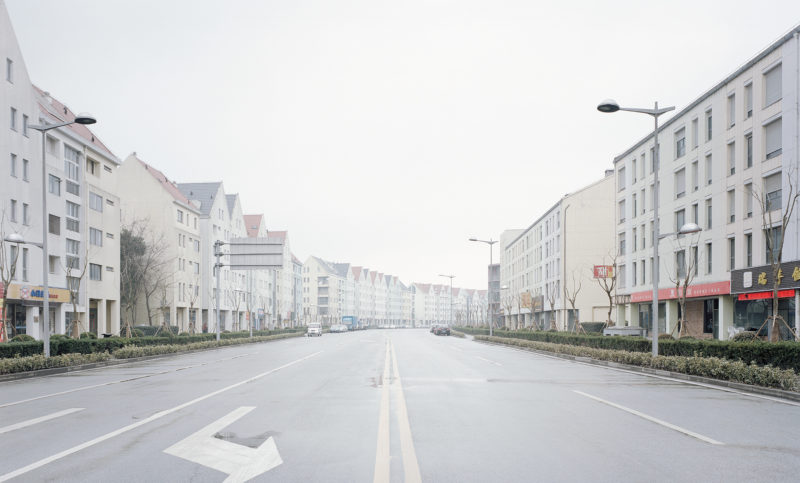
France
Following France’s involvement in the Balkan conflict in the 1990s, the French Army realized that it needed a large training area, leading to the creation of CENZUB (Training Centre for Interventions in Urban Areas) in Sissonne, north-eastern France.
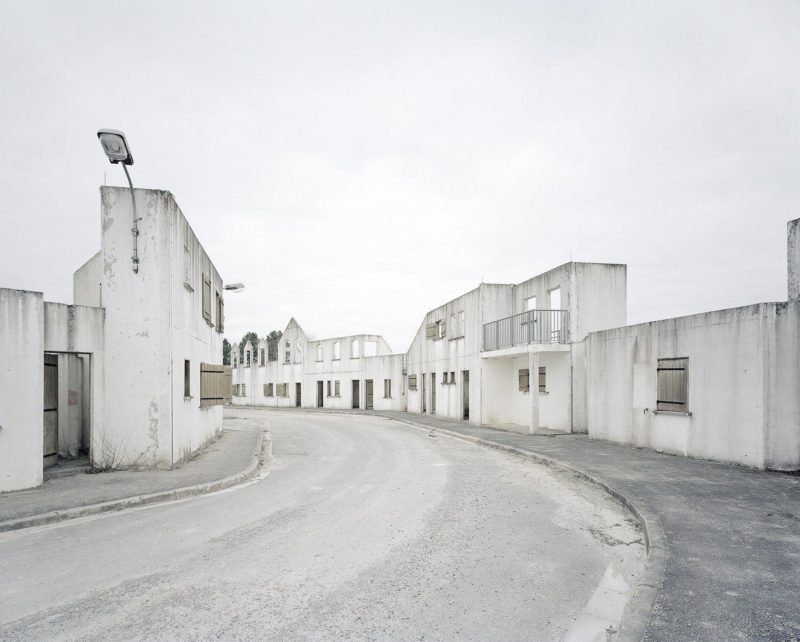
Beauséjour is an urban warfare training site at Camp de Sissonne in France
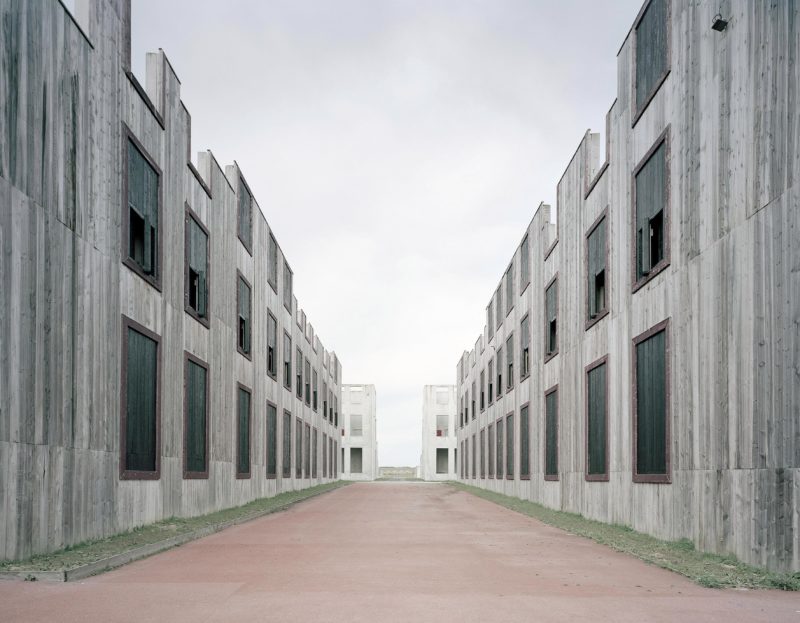
Camp de Sissonne has been used by the French army since the late 1800s
Opened in 2006, the central purpose is training the French military for urban combat. Since around 50% of the world lives in metropolitan areas, the Army wanted to have a place where they could train troops in all kinds of weapons in a realistic setting.
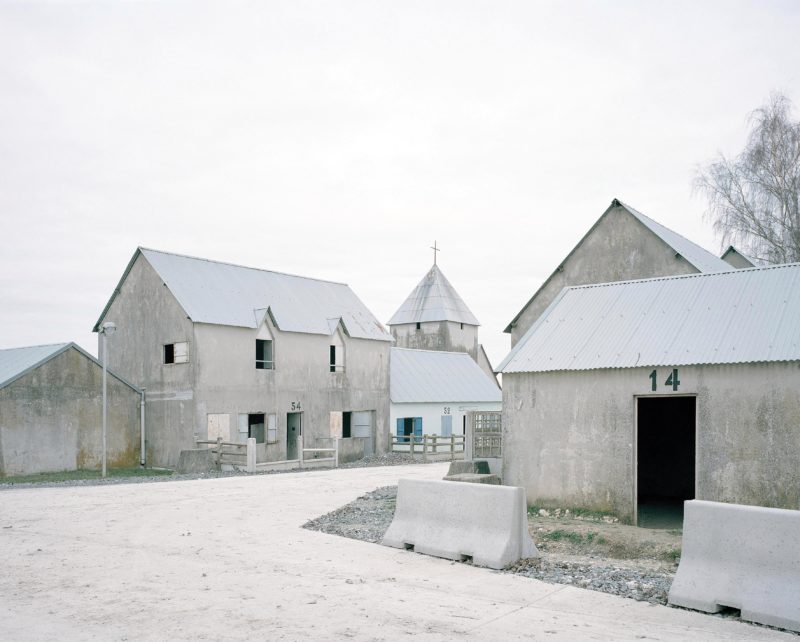
Jeoffrécourt at Camp de Sissonne is used to train the French military
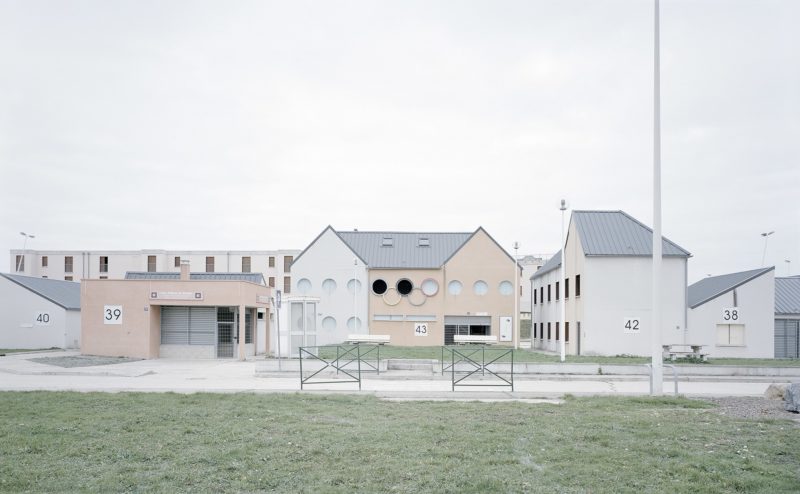
Jeoffrécourt is an urban combat training site at Camp de Sissonne
The French Army has also been involved in other urban conflicts over the last 20 years, such as Somalia, Chechnya, Bosnia 11, Iraq 12, and Ivory Coast, amongst others.
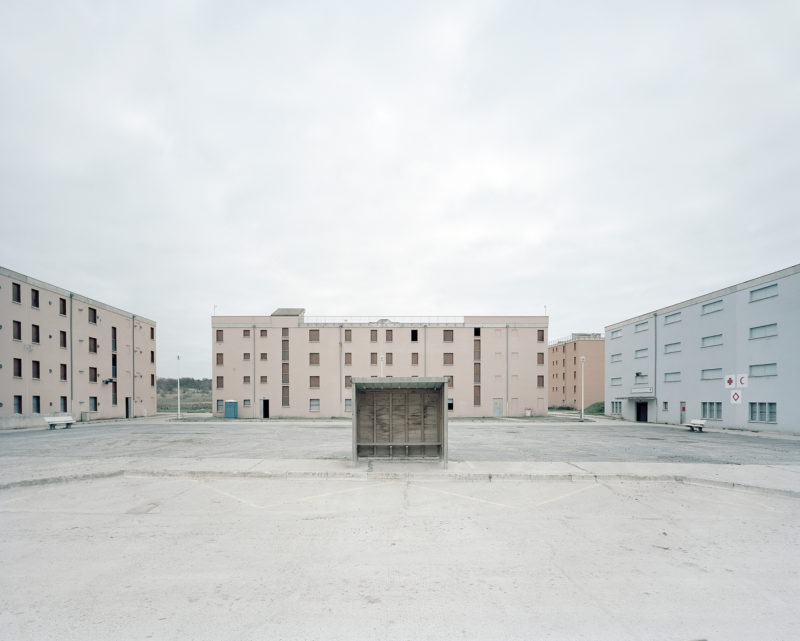
Jeoffrécourt, French Army, France, 2015
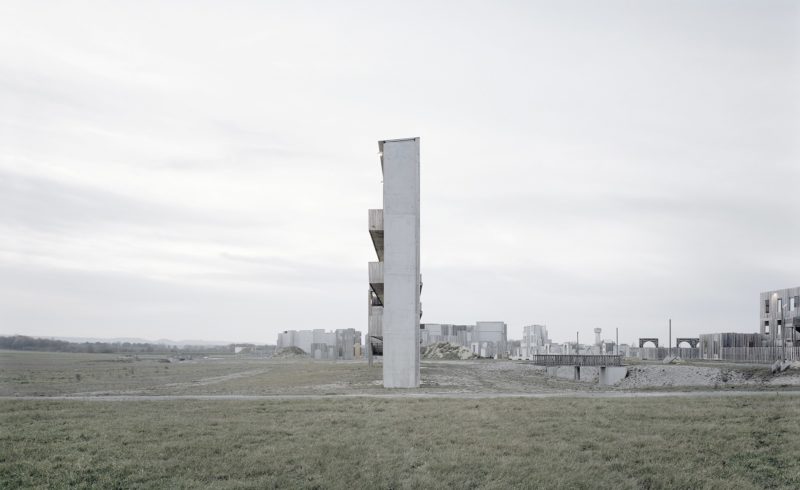
The French Army conducts urban warfare training at the Complexe de Tir en Zone UrBaine at Camp de Sissonne, France
80 million euros were spent constructing three different sites and equipping them with various command and support buildings. 250 soldiers can now simultaneously train in fake in cities and villages.
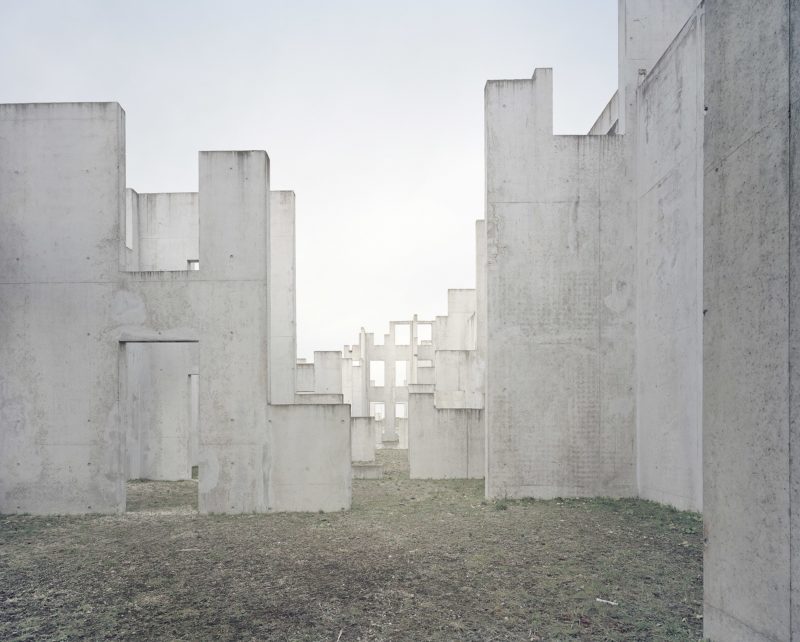
The French Army trains its military for urban warfare at the Complexe de Tir en Zone UrBaine
Germany
Schnöggersburg, Germany, is one of the most extensive military training areas. Located in Saxony-Anhalt, the facility is the most modern and also the largest of its kind in Europe.
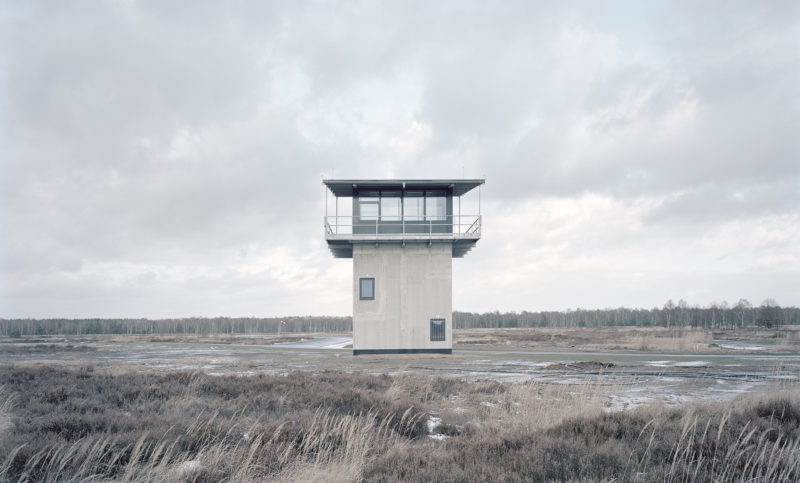
Schnöggersburg VII, German Army Sachsen-Anhalt, Germany
There are about 520 buildings, a highway, and an artificial river 13 course. Several bridges connect the different areas that consist of industrial and residential constructions.
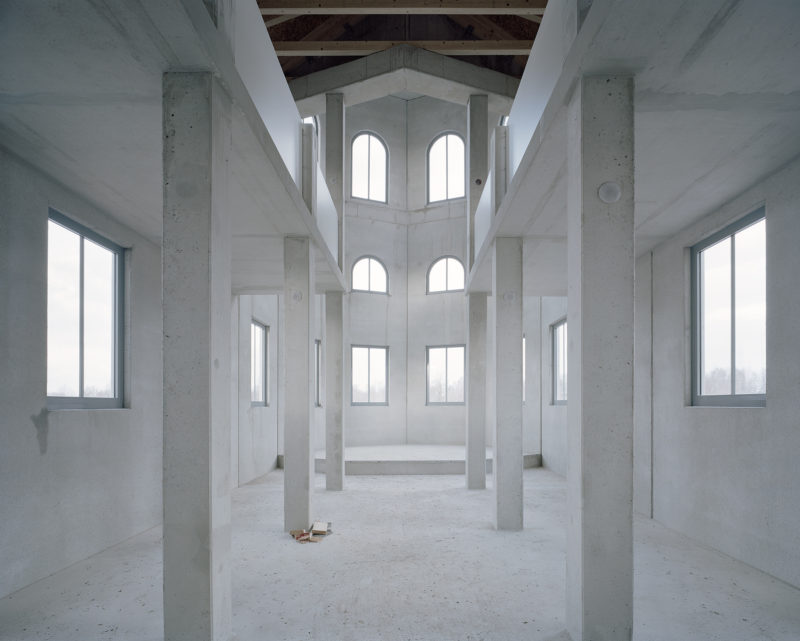
Schnöggersburg X, German Army Sachsen-Anhalt, Germany, 2017
Built over six square kilometers, there are high-rise buildings, housing estates, an airport, hotels, a stadium, a prison, a church and a mosque. Curiously, there is also a “slum”, a cemetery and various destroyed infrastructure elements. Another oddity is the 350-meter-long subway line with three stations.
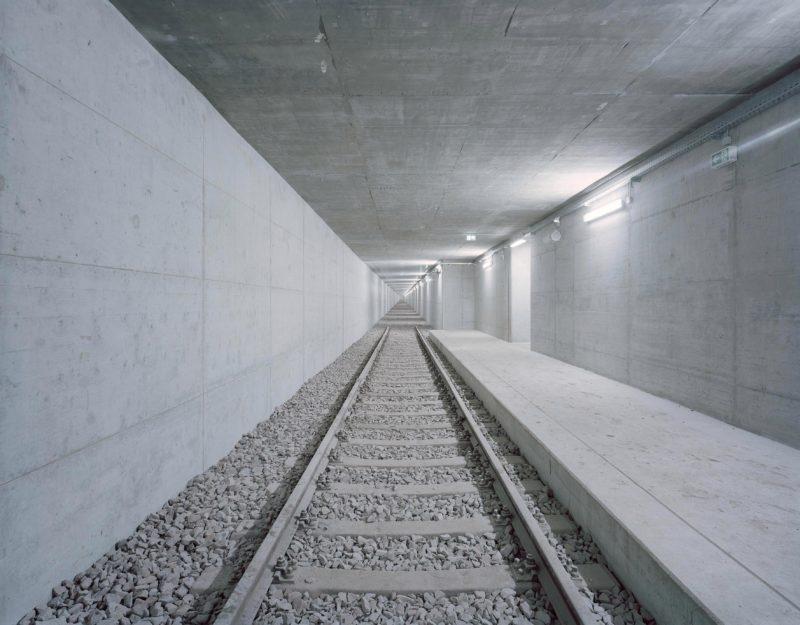
The train track at this station lead nowhere, Schnöggersburg, Germany
Airplanes, including heavy transport aircraft, can land on the 1700-meter-long runway. Around 1,500 soldiers can practice fighting missions simultaneously. Up to 1500 soldiers are to train combat missions here simultaneously.

This fake town in Germany is used as a military training base
Construction started in 2012 and has consumed well over 140 million Euros and caused several protests by citizens’ initiatives. Entering the facilities without permission is illegal.
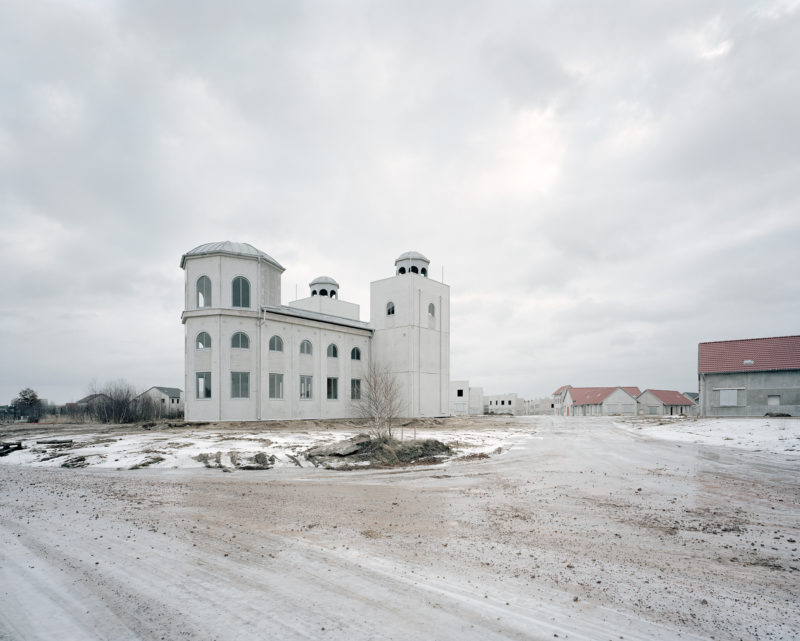
Schnöggersburg IX, German Army Sachsen-Anhalt, Germany, 2017
Sweden
In Sweden, Sailer visited the vehicle test areas AstaZero and Carson City. They were built to simulate a town that deals with road safety.
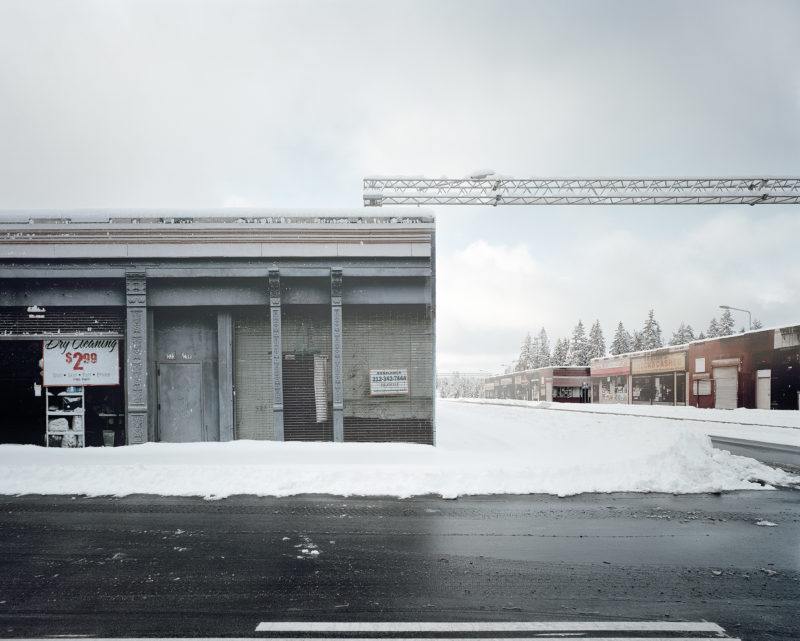
Astazero – The Volvo testing facility in Sweden
These environments were built on an authentic scale and operated as a proper city would; they even have real traffic lights. However, cars drive extremely fast and get involved in accidents.
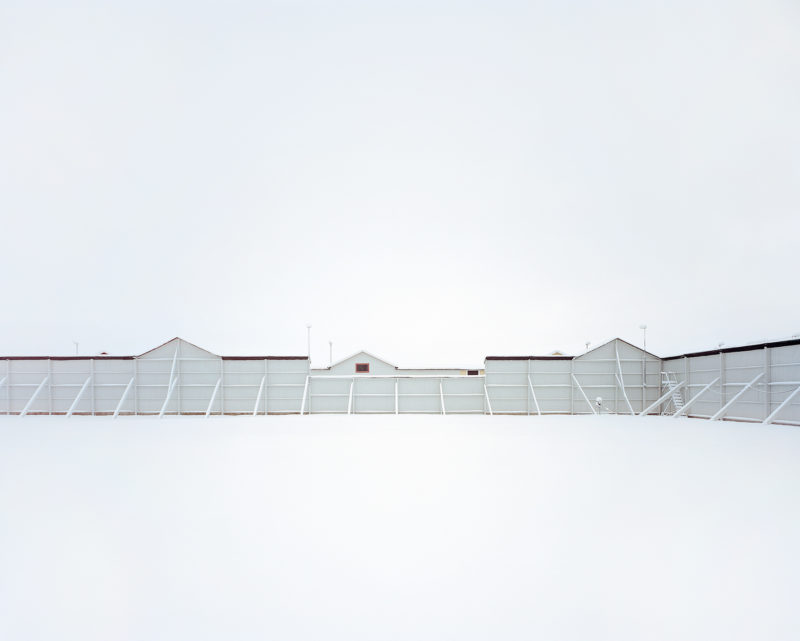
Carson City VII/Vårgårda, Sweden, 2016
Interestingly, both cities don’t mimic Swedish towns. They do, in fact, copy Harlem, a neighborhood in New York. If you look closely, you can spot various restaurants and stores, including English advertisements and signs.
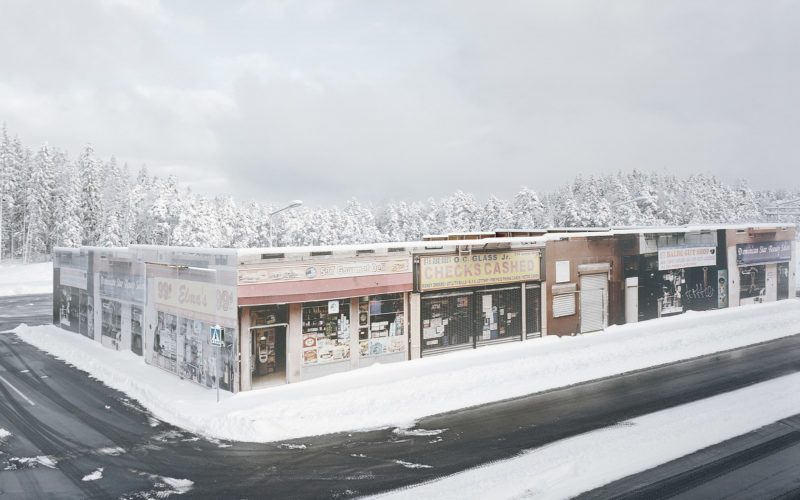
New York delis, beauty salons and other shops line the streets of the AstaZero proving ground in Sandhult, Sweden
USA
Located in the Mojave desert in California, the US Army built 24 oriental-style villages. Being involved in urban conflicts such as Afghanistan 14, Iraq 15, Syria 16 and others, the Fort Irwin National Training Center serves as a training facility for US troops.
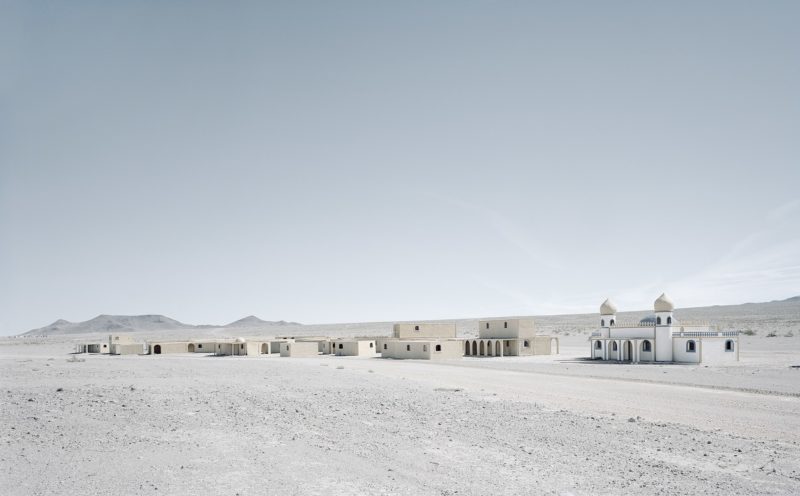
Buildings rise in the Mojave desert at Alligator Junction, a fake town for simulating urban warefare at Fort Irwin
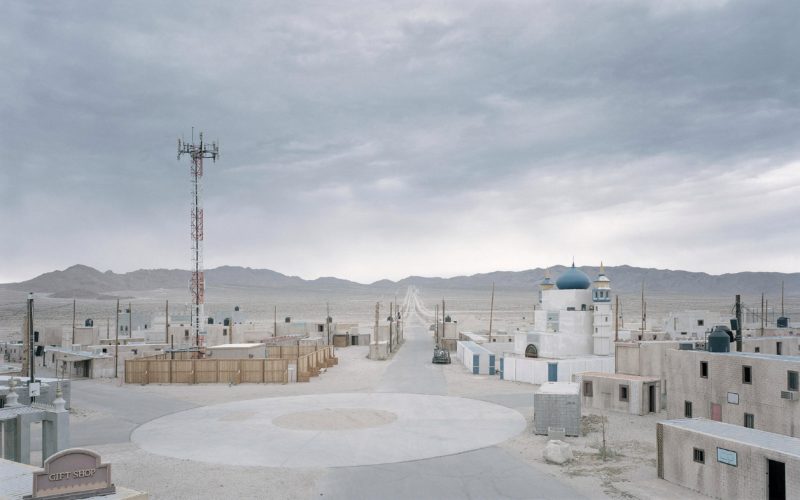
Fake buildings form a Middle Eastern town at Junction City, Fort Irwin in the Mojave Desert. The city is used for army training
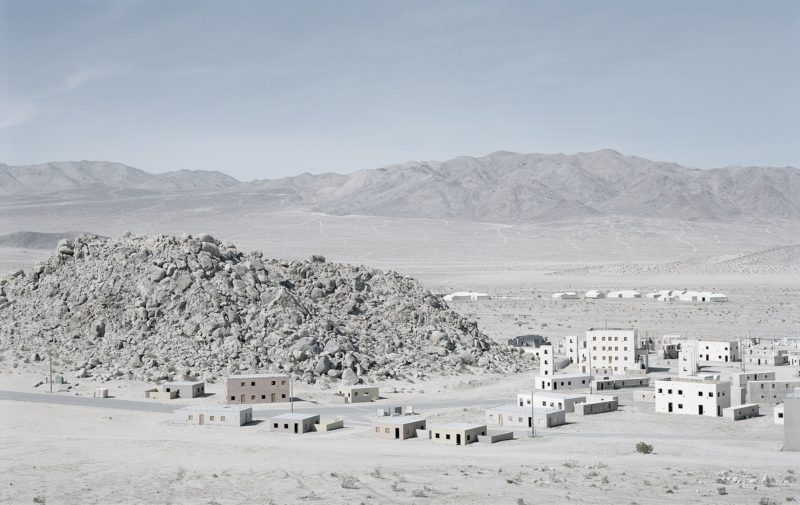
Tiefort City is a fake town at Fort Irwin in the Mojave Desert
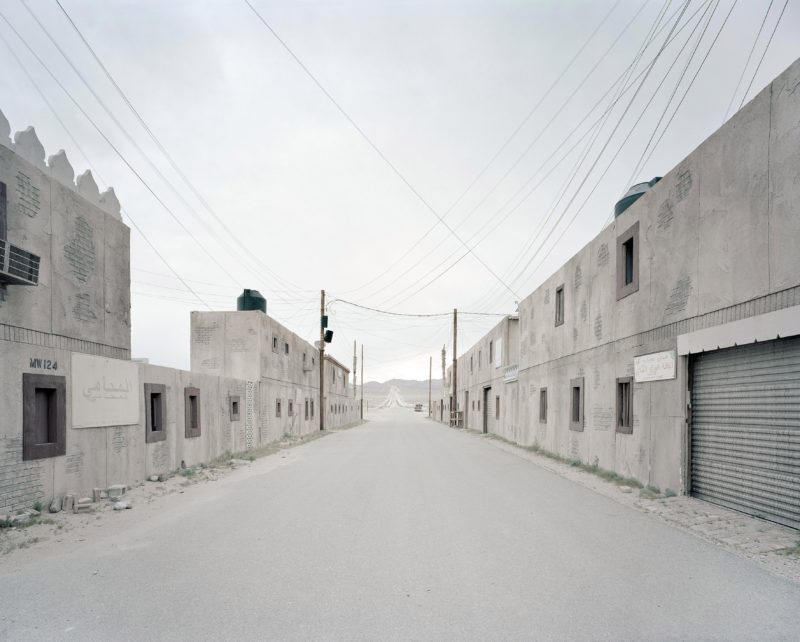
Junction City, at Fort Irwin in California is used to train soldiers heading to the Middle East
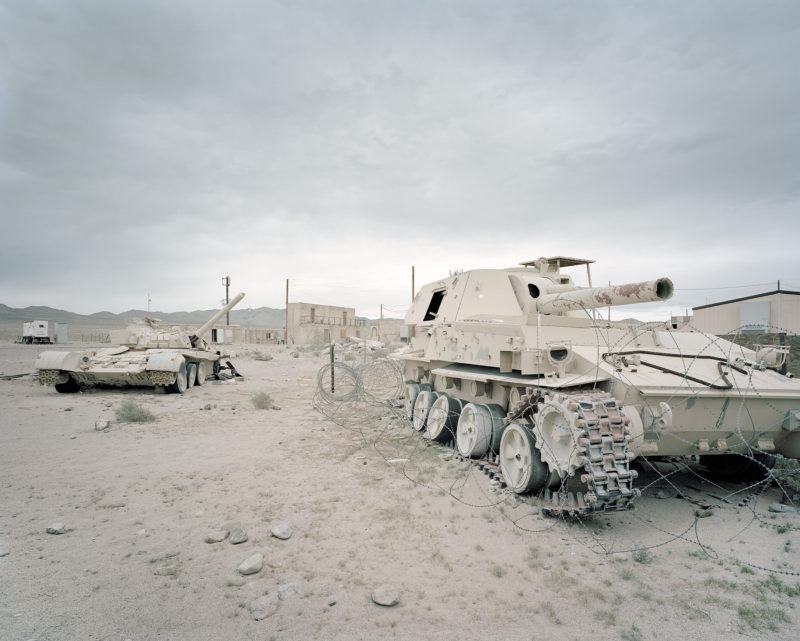
Junction City X, Fort Irwin, US Army, Mojave Desert, California, USA, 2016
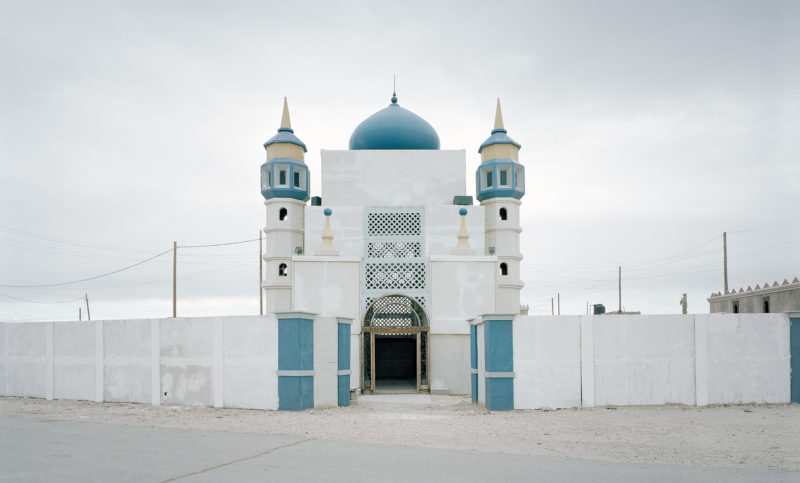
Junction City IV, Fort Irwin, U.S. Army, Mojave Desert, California, U.S.A., 2016
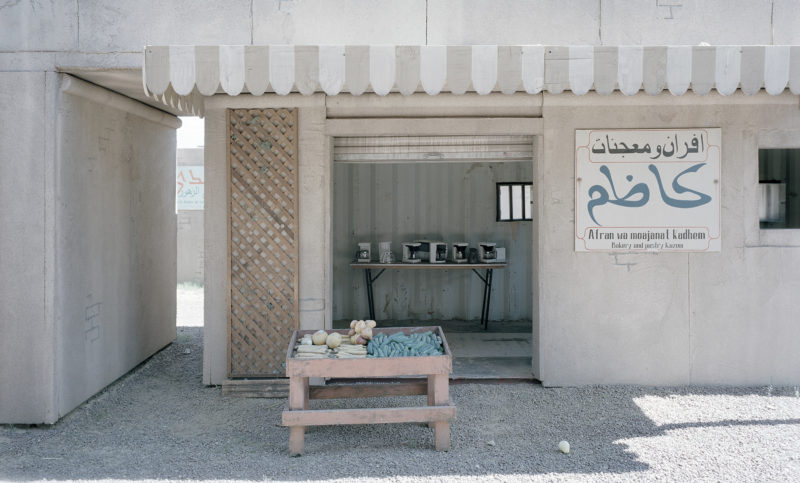
Tiefort City XVI, Fort Irwin, US Army, Mojave Desert, California, USA, 2016
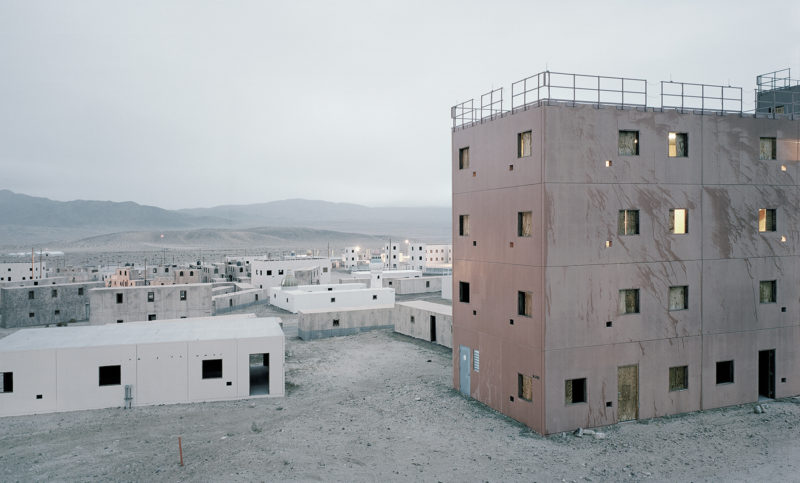
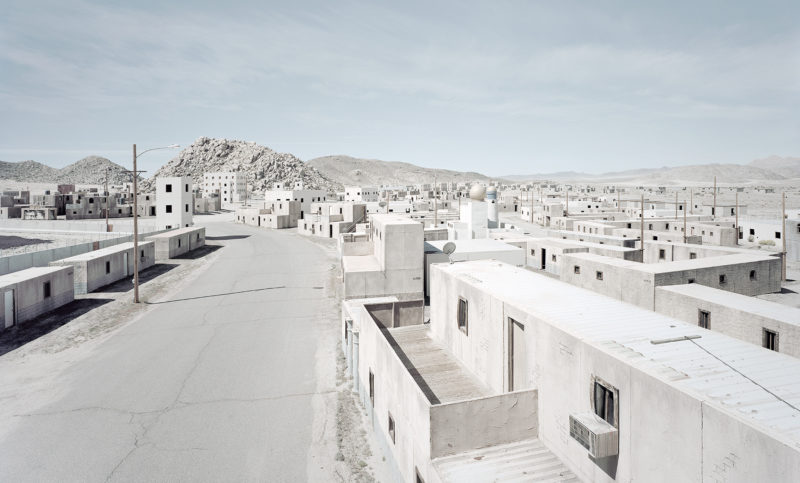
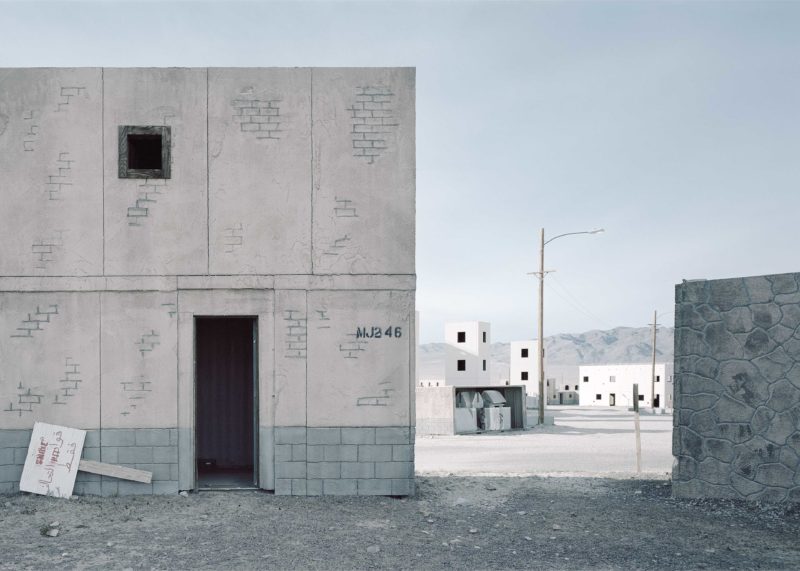
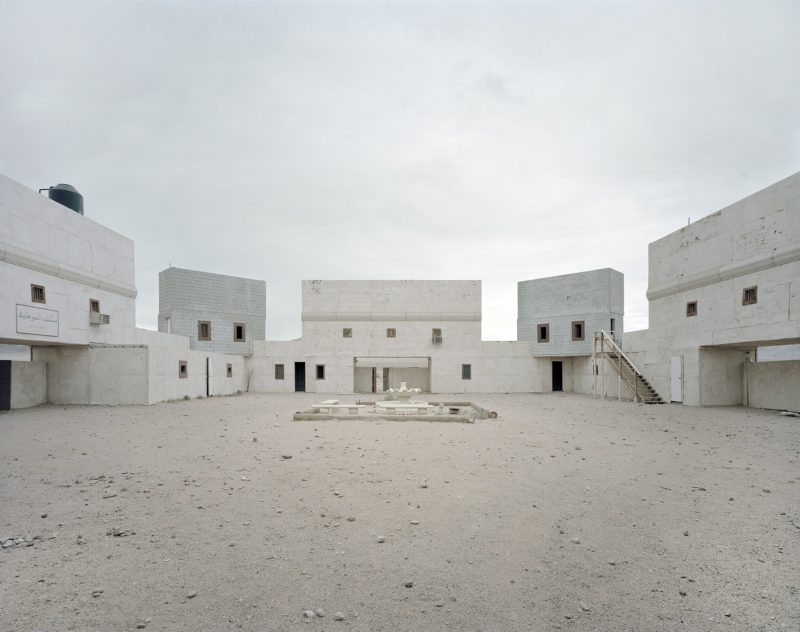
US troops train at Junction City, Fort Irwin ahead of deployment abroad
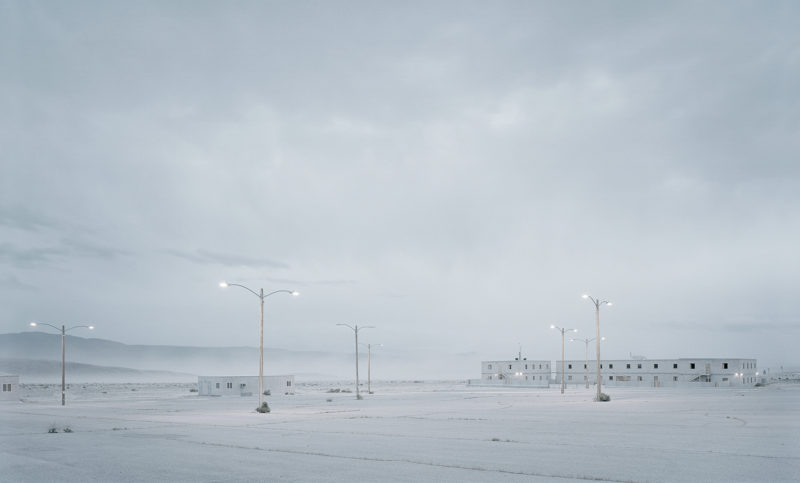
Tiefort City, Fort Irwin, US Army, Mojave Desert, California, USA, 2016
